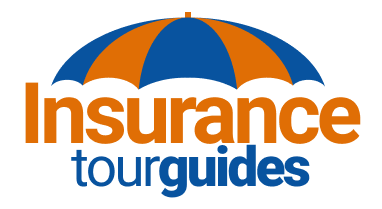Remote work has become a lifestyle, not just a trend. Whether you’re working from your home office, a beach in Bali, or your local coffee shop, the freedom is unbeatable—but it comes with some often-overlooked risks. Insurance might not be the first thing on your mind when you’re setting up your laptop, but having the right coverage in place can save you serious money and stress down the road.
From liability risks to lost equipment to gaps in homeowners coverage, remote workers need to think a little differently when it comes to insurance.
Why Remote Workers Need to Think Differently About Insurance
When you’re not working in a traditional office, a lot of assumptions about protection go out the window. For example, if your company used to cover liability for onsite work, does that still apply when you’re in your living room? And if a client trips over a cord in your home during a meeting—who’s liable?
Remote work environments blur the lines between personal and professional spaces, which means your insurance coverage needs to adapt too.
Liability Coverage for Remote Workers
Liability insurance isn’t just for businesses—it matters at home too. Depending on the nature of your remote work, you might be taking on more risk than you realize.
If You’re an Employee
Most full-time remote employees are still covered by their employer’s general liability and workers’ compensation policies. But that doesn’t mean you’re off the hook completely. If you’re hosting clients or vendors at your home, you could be personally liable for injuries or damages that occur.
If You’re Self-Employed or Freelancing
Independent contractors, freelancers, and small business owners face more exposure. You may need:
-
General liability insurance to cover third-party injuries or property damage
-
Professional liability (errors & omissions) if you provide consulting or services
-
Cyber liability insurance if you handle sensitive client data or digital transactions
Even if you’re working out of your spare bedroom, you’re running a business—and that requires protection.
Renters and Homeowners Insurance Adjustments
Your existing renters or homeowners policy likely covers basic personal belongings, but it may not extend to business-related equipment or liability.
What’s Typically Not Covered
Most standard home insurance policies exclude:
-
Equipment used primarily for work if it exceeds a certain value
-
Business liability (injuries to clients or delivery workers on your property)
-
Lost income from home office damage
You might need to add a home business endorsement or purchase an in-home business policy to fill these gaps.
Check for Coverage Limits
Policies often cap business property coverage at around $2,500. If you’ve got a powerful computer setup, cameras, printers, or tools of your trade, you may be underinsured.
Here’s a quick look at how personal policies usually stack up:
| Policy Type | What’s Covered | What’s Not Covered |
|---|---|---|
| Standard Homeowners/Renters | Basic personal belongings (some work items, up to a limit) | High-value tech, liability for business visitors |
| Home Business Endorsement | Extends coverage to include business property | May still exclude liability or business interruption |
| In-Home Business Policy | Business property, liability, loss of income | Limited to specific business activities and property use |
Tech Equipment Insurance: Don’t Leave Your Gear Exposed
Your laptop, monitor, tablet, and mobile devices are essential to your work—and often expensive to replace. But standard insurance policies may not fully protect them, especially if you’re on the go.
Consider Inland Marine or Scheduled Property Coverage
If you travel often or work from different locations, consider adding:
-
Inland marine insurance: Protects mobile equipment and electronics across locations
-
Scheduled personal property: Adds extra protection for high-value items with customized limits
What About Your Employer’s Equipment?
If your company provided your work devices, ask if they’re insured—and whether that coverage applies off-site or abroad. You may still be liable if something gets damaged or stolen outside of a designated workspace.
International Coverage for Digital Nomads
If you’ve taken remote work global, you’ve got extra layers to think about. Traditional U.S.-based policies often don’t apply overseas.
Look into:
-
Travel insurance with gear coverage: Covers lost or stolen electronics abroad
-
International health insurance: Essential for emergency care and routine health needs outside the U.S.
-
Worldwide liability insurance: Especially useful for freelancers or consultants working with clients abroad
Some insurers now offer packages designed specifically for digital nomads—worth exploring if your office has a passport stamp.
Questions to Ask Your Insurance Provider
It’s a good idea to review your policies with your agent and ask targeted questions like:
-
Does my home policy cover work-related equipment and liability?
-
Should I add a rider or endorsement for my business activities?
-
Am I covered if a client gets hurt on my property?
-
What’s the process for filing a claim on work gear?
-
Does my policy protect me if I work while traveling?
Getting clear answers helps you avoid surprises if something goes wrong.
Coverage Checklist for Remote Workers
Here’s a simplified checklist to help you audit your current insurance needs:
| Coverage Type | Who Needs It | Why It Matters |
|---|---|---|
| General Liability Insurance | Freelancers, small business owners | Protects against legal claims and injuries |
| Professional Liability (E&O) | Consultants, designers, service providers | Covers mistakes or negligence in your work |
| Homeowners/Renters Endorsement | Anyone working from home regularly | Extends property coverage for work use |
| Tech Equipment Coverage | All remote workers | Ensures you can replace essential work tools |
| Cyber Liability Insurance | Anyone handling sensitive or client data | Protects against data breaches and digital threats |
| International/Travel Insurance | Digital nomads and international workers | Covers health and belongings while abroad |
Remote Work Is Here to Stay—Make Sure You’re Protected
The flexibility of working from anywhere is worth protecting. As the remote workforce grows, so does the importance of adapting your insurance coverage to your new reality. Whether you’re setting up shop in your kitchen or across the globe, the right mix of policies can give you peace of mind, protect your income, and keep your business—or career—moving forward.
Sources
-
Insurance Information Institute: Home-Based Business Insurance Basics
-
Freelancers Union: Guide to Liability Insurance for Remote Workers
-
Forbes: What Digital Nomads Should Know About Insurance
-
National Association of Insurance Commissioners: Working from Home Insurance Considerations

